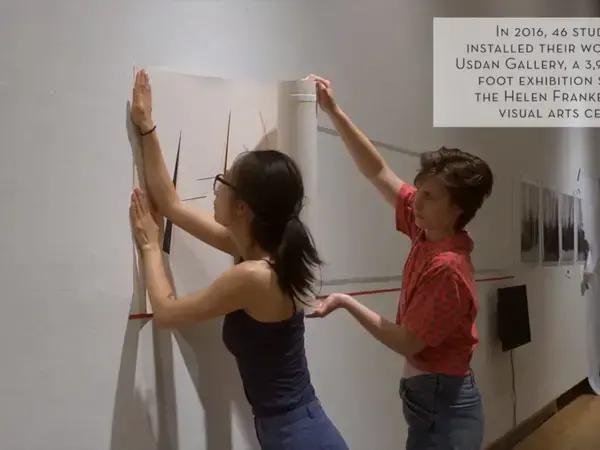
Photography
At Bennington, students work closely with faculty to design the content, structure, and sequence of their study and practice—their Plan—taking advantage of resources inside and outside the classroom to pursue their work.
Photography at Bennington offers students an introduction to both analog and digital opportunities. Courses cover a broad range of thematic topics, exploring photography’s rich history from the 19th, 20th, and 21st centuries, and investigating all genres of the medium, as well as intersections with other artistic practices. Studio photography classes are designed to mix creative production with relevant readings, historical research, and technical hands-on instruction.
Students are able to borrow both film and digital equipment, and facilities include a lighting studio, a black-and-white film darkroom with 7 enlarging stations, an alternative processes lab, a state-of-the-art digital lab with 12 workstations, along with a new 44-inch-wide-format inkjet printer. Our courses take advantage of photo archives housed in Bennington's Crossett Library as well as in the nearby collections of The Bennington Museum, The Clark Art Institute, and the Williams College Museum of Art.
Faculty
Terry Boddie’s work as a photographer and multidisciplinary artist explores the intersection of history, migration and memory and how these forces impact historical and contemporary photographic representation.
Elizabeth White is an artist whose work ranges in form from photography to digital collage, installation, drawing, and social practice. Informed by a background in sociology and media studies as well as visual arts, she is interested in the social impact of photography and related technologies, and the politics of visual culture.
Visiting Faculty & Technicians

Eddy Leonel Aldana is a Latinx artist whose work examines his family’s place in the Guatemalan diaspora, and how colonialism and U.S. intervention created a climate for displacement during his family’s lifetime.

Luiza Folegatti is a Brazilian multidisciplinary artist and visual anthropologist. Her practice combines research on gender, migration, photography, and Latin American studies with social advocacy for immigrant rights.

Gus Ramirez is a New York-based multidisciplinary artist that focuses on exploring queer identities and representation in an overwhelming binary world. Through the utilization of interdisciplinary arts that combine to create a historical reference and explorations, they unite to make a queer adjacent history.




